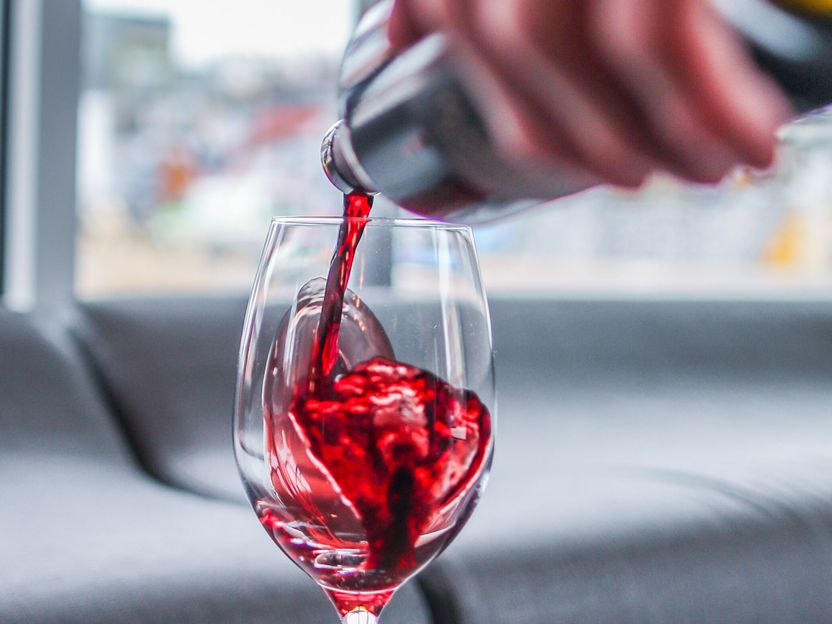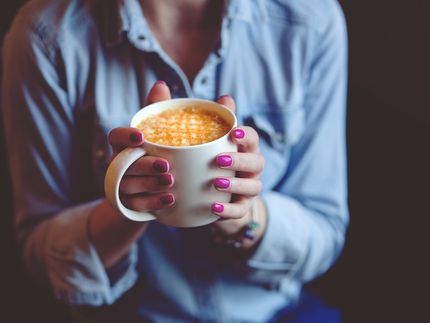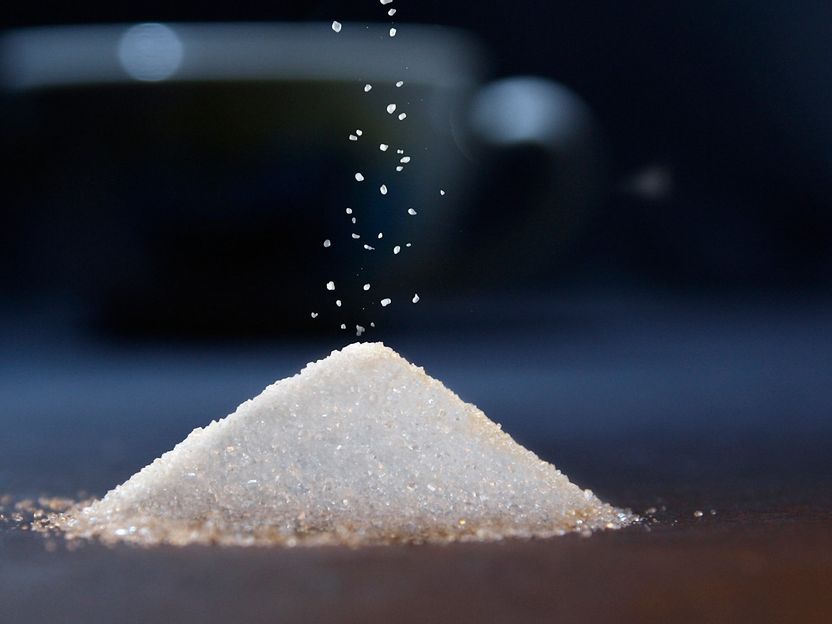Is red wine overrated as a trigger for migraine attacks?
A recent study [1] showed that red wine always triggers a migraine attack in only 8.8% of patients. The authors of the study therefore doubt that alcohol/red wine is an independent migraine trigger. Has the migraine-triggering effect of red wine been overestimated so far? DGN press spokesman Professor Dr. Hans-Christoph Diener, Essen, does not believe: "Alcohol, especially red wine, is a migraine trigger; it is not clear how big its influence actually is." Migraine patients are always well advised to avoid every avoidable trigger of a migraine attack.

symbol image
Photo by Zachariah Hagy on Unsplash
About 15% of the population suffers from migraine. This headache disorder is characterised by recurrent, usually very severe, unilateral headaches, some of which are associated with certain neurological symptoms (aura symptoms). These usually occur before the actual headaches, they include, for example, dizziness, flickering eyes, narrowing of the visual field, also tingling or numbness in the limbs. Some patients experience nausea and vomiting during the headache phase, and are often particularly sensitive to noise or light during the headache attack. The duration of a migraine attack varies from patient to patient - for some it is already over after four hours, for others it lasts up to three days. The frequency of migraine attacks is also quite different. There is no question that migraine is extremely stressful for those affected and severely restricts their quality of life. Many patients need to take continuous medication to prevent severe migraine attacks.
Migraine is one of the neurological diseases whose causes have not yet been fully investigated. However, triggers of a migraine attack, such as stress, changes in the sleep-wake rhythm, changes in the weather or hormonal changes caused by the menstrual cycle, are well known (the proportion of women suffering from migraine is almost twice as high as that of men). Even unusual, "extreme" sensory perceptions such as noise, visual stimuli or smells can trigger migraine attacks. Nutrition can also play its part: For some people, headaches may be caused by missing meals, for others by certain foods such as chocolate or alcohol.
A Dutch study [1] recently published in the "European Journal of Neurology" investigated the significance of alcoholic beverages as triggers of migraine attacks and the effect on the consumption of alcohol by migraine patients. 2,197 patients were asked web-based about their drinking habits and the triggers that trigger their headache attacks. The respondents were participants in the Leiden University MIgraine Neuro-Analysis (LUMINA) project, aged 18 to 80, suffering from migraine according to the International Medical Classification ICHD-3.
1,547 of the 2,197 respondents stated that they consume alcohol. Of the respondents, a total of 783 patients (35.6%) stated that alcohol triggers headache attacks in them. Among the 1,547 respondents who occasionally drink alcohol, the proportion was even higher: in this group, 42.5% said that alcohol was a migraine trigger in them. These patients, who had migraine attacks caused by the consumption of alcohol, had a lower body mass index (BMI) compared to the others, suffered more frequently from migraines without aura symptoms, had more migraine attacks per year and more "migraine days".
The study also investigated which alcoholic beverages lead to migraine attacks particularly frequently. Wine, in particular red wine, was most frequently mentioned. It is suspected that certain ingredients contained in red wine such as histamine, tyramine or phenylethylamine may cause this effect. The interviewees stated that two standard glasses were sufficient to provoke a migraine attack. On the other hand, only 8.8% of the study participants reported that red wine always and without exception leads to migraine attacks. The authors of the study therefore doubt that alcohol/red wine is an independent trigger. The fact is, however, that migraines change the consumption behaviour of alcohol, and many patients distance themselves from them. According to the study authors, it can therefore be discussed whether alcohol is a real or only a "felt" trigger of migraine attacks.
Professor Dr. Hans-Christoph Diener, Essen, Press Officer of the German Society for Neurology (DGN), classifies the results as follows: "Rarely is only one single trigger responsible for the onset of a migraine attack, usually several triggers come together. Red wine is easy to avoid, other migraine triggers, such as hormone fluctuations or weather changes, but not. Therefore, it is wise to avoid avoid avoidable triggers in order to reduce the risk of migraine attacks. The study should by no means be interpreted as meaning that migraine patients should quietly drink red wine - alcohol, especially red wine, remains a migraine trigger, but it is not clear how big its influence actually is. "Migraine patients are always well advised to avoid any avoidable trigger of a migraine attack."
1] Onderwater GLJ, van Oosterhout WPJ, Schoonman GG et al. Alcoholic beverages as trigger factor and the effect on alcohol consumption behavior in patients with migraine. Eur J Neurol. 2019 Apr;26(4):588-595
Note: This article has been translated using a computer system without human intervention. LUMITOS offers these automatic translations to present a wider range of current news. Since this article has been translated with automatic translation, it is possible that it contains errors in vocabulary, syntax or grammar. The original article in German can be found here.



























































